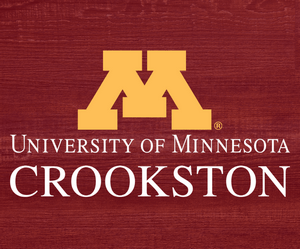The University of Minnesota Crookston has unveiled a new transformational campus alcohol policy. The policy is intended to be a comprehensive educational strategy informed by theory and research to help educate UMC students on how to make healthy decisions related to alcohol.
“This is a key component in a comprehensive alcohol education program for students,” said Savala DeVoge, Ed.D., Dean of Student Engagement, “This program is aimed at giving students safer options when it comes to drinking – students will not need to leave campus and potentially drive under the influence.”
The new UMC alcohol guidelines will enable students of a legal drinking age (21 or older) to earn privileges to drink on campus by participating in educational programs shortly before turning 21 and by abiding by the rest of the UMC’s campus policies for responsible drinking. The intent of the policy is to target educational programming at the most critical moments for students, namely when they first arrive on campus and as they turn 21. Educational content aims to foster a healthy and responsible culture of drinking in on-campus residence halls among students of a legal age. In the past, students were not able to consume alcohol on campus, which led them to go to bars and restaurants and off-campus locations where they are in a minimally structured environment.
“Programs like this also allow for students who are of age to model responsible drinking behavior by being good and conscientious neighbors within our residential community,” DeVoge stated. “Overall, I believe this will have a positive impact on our students’ sense of belonging. We are a campus who welcomes all, and now we will no longer be sending our students who are of drinking age away if they want to do so. This is about responsible personal agency.”
The UMC’s on-campus alcohol policy will provide an educational strategy to promote various aspects of responsible drinking as well as strategies for intervening, referring, and/or reporting peers who engage in high-risk drinking or other harmful behaviors often associated with consuming alcohol. Students who earn drinking privileges will be issued a new Student ID that includes a drinking privileges designation that will aid student affairs educators and student community advisors with enforcing alcohol policies with students living on campus. Within the new policy, UMC students must comply with state law and conduct themselves in a manner that supports the health and safety of others. Students who violate the policy will be subject to disciplinary actions, which may include temporary or permanent suspension of drinking privileges on campus.
This policy fits within broader wellness programming at UMC. All new students at UMC must complete an educational program addressing alcohol, tobacco, and other drugs prior to matriculating as students. For many years, the University of Minnesota Crookston has participated in social norm programming informed by the Boynton Health College Student Health Survey as well as additional co-curricular programming addressing alcohol use and related student behaviors including stress management, sexual violence, and mental health, to name a few. In the fall of 2019, UMC additionally implemented a sequence of first-year seminar courses required for all new high school students. Included within the curriculum for these courses are multiple wellness modules, including modules addressing alcohol and other drugs. Once implemented, the policy will also drive additional alcohol education prior to students’ 21st birthdays.




